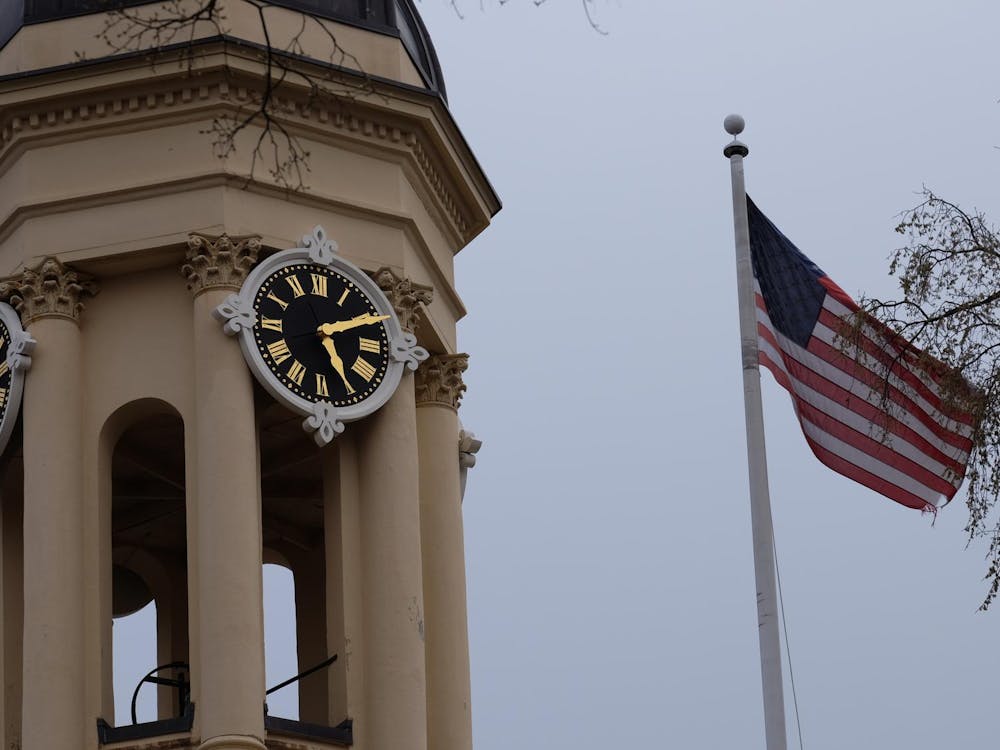Regarding ‘Whitman frosh lend a hand to seniors in need,' March 3, 2008:
Readers of The Daily Princetonian's article on the thesis buddy system at Whitman College could be forgiven for drawing the completely incorrect conclusions that the system will match only freshmen with seniors and that the system could involve de facto hazing of underclass students. In fact, the announcement went out to all non-seniors in the college and it was originally aimed at juniors, who likely know the seniors best and are the next in line to write theses. More importantly, when seniors sign up for a thesis buddy they will be given clear guidelines on what types of help can be requested. The program is designed to last about three weeks, with one helpful task performed each week. The helpful tasks deemed acceptable would cost volunteers about 15 minutes of their time each week - and should certainly not cost them a shred of dignity. Such tasks include starting a load of laundry, grabbing a snack and returning library books.
This strictly voluntary program is essentially a small-scale service project performed by students for members of their college community who may be experiencing a particularly stressful time. It remains to be seen whether this program is one to which our students in Whitman will respond, but as a four-year college we are committed to offering a range of programs and support services to all our students, including our seniors.
Cole Crittenden

The ‘Dixie Chicks' are not feminists

Regarding ‘How to be a feminist without anyone knowing,' Feb. 28, 2008:
Overall, I was following this column until the Dixie Chicks were named as women "who make intellectual contributions," have "talent and integrity" and "make real contributions and can inspire us to do the same." Sure, they have a political opinion and are famous enough to express it how they desire. But does this make them true role models, and have they made "real contributions"? Or was it their nude photo shoot on the cover of Entertainment Weekly? If posing nude and defaming our president abroad is the new way for women to make a statement and inspire us all, then feminism has taken a turn for the worse and will continue to have a negative connotation.
Katie Giarra '09
U. believes that arming officers is not the answer
Regarding ‘Lost minutes and unsaved lives,' March 3, 2008:
James Lanzi's recent column describes laudable goals that the University endorses wholeheartedly. Princeton re-examined all of its safety and security emergency response practices in light of "lessons learned" from other major acts of campus violence. Last fall, immediately following the release of the Virginia Tech Review Panel report, we worked closely with colleagues in relevant departments to update University protocols based on recommendations from the report as well as from an Oct. 2007 report from N.J. Gov. Jon Corzine's panel on campus security.
Our efforts to avoid or mitigate acts of violence have resulted in progress in four areas. We have enhanced our campus emergency-management plans. We have also enhanced our policies and procedures to promptly deliver emergency notifications to campus community members. Our protocols to identify "at-risk" students, faculty and staff and provide effective oversight and intervention are improving. In addition, our relationships with state and local law enforcement agencies, emergency-management agencies, mental health providers and other appropriate partners are now much better.
The University does not believe that arming Public Safety officers is the right decision. We recognize that this is a judgment that reasonable people can debate. But it is our hope that this debate does not detract from the improvements made over the past decade. Princeton has improved its ability to provide a strong safety and security presence, improved its plans on early intervention, proactive detection and mitigation of risks that present visible warning signs that are apparent to a vigilant and well-trained safety support network.
Steven Healy
Laurel Harvey







